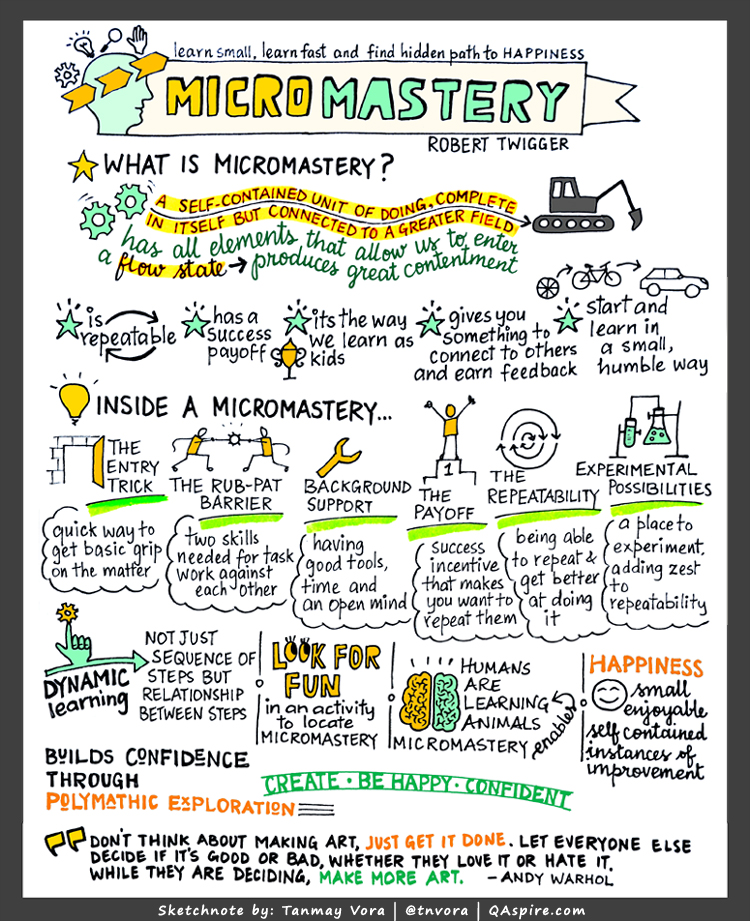Micromastery: A Hidden Path to Learning and Happiness
Tanmay Vora
Learning anything new is not a daunting challenge, but a journey where each step counts. Fundamentally, we learn so that we can be happy and joyful. Micromastery is a great way to eliminate anxiety in learning.
Two years back, I was fascinated by people creating sketchnotes and I wanted to learn how to create them. I was unaware of what goes into creating a great sketchnote but I decided to give it a try anyway. I remember taking up a quote and creating some rudimentary visual which I then shared on Twitter as a showoffable outcome. A couple of generous folks appreciated and that feedback fueled further exploration. I then explored more to learn about structure. My second sketchnote was incrementally better than the first one. It had a structure, some use of typography and separation of key ideas. I pushed it a bit further, one step at a time, by exploring visual metaphors, learning from the community, getting better at image quality and editing/coloring them using digital tools. And then, they started getting noticed. Each step fueled the other resulting in a body of work that I am incredibly proud of.
I never felt overwhelmed along this journey because I was doing it for the joy of doing it. I wanted to get better and at the end of every iteration, I wanted myself and the world to see an improved outcome. I was pursuing what Robert Twigger calls “Micromastery”.
This approach has served me well while learning how to write, speak in public, play a few songs on harmonica (mouth organ), sing solo and play a guitar.
Truth is, that is how we learn as kids. I can see my 5 years old son dabbling into so many things, learning in small increments and then improving upon it. He doesn’t want to be a specialist. He just wants to explore whatever interests him. His latest fascination is drawing the Amazon logo and he is getting better at it. His eyes shine when he succeeds at creating stick figures.
I read this book “Micromastery” by Robert Twigger with great interest. He defines micromastery as:
“A micromastery is a self-contained unit of doing, complete in itself but connected to a greater field.”
The book nicely explores different facets connecting micromastery to dynamic learning, getting into flow, polymathism (Neogeneralism, multipotentialite) and happiness. In many ways, reading this book was liberating because it tells us that we neither need permission to learn anything nor an overwhelming plan. We just need to find what we love doing, however insignificant, and start pursuing it.
If you are a keen learner who is interested in learning wide array of things instead of going just deep, this book is for you.
Here is a sketchnote covering some ideas from the book:

Brilliant!